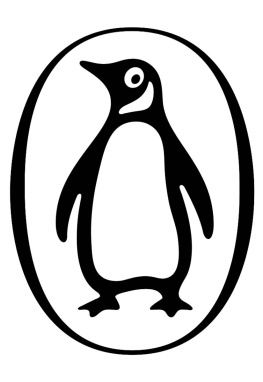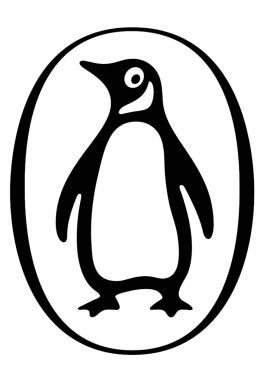Venezuela, 1800
ALEXANDER VON HUMBOLDT
Jaguars and Electric Eels
Translated by JASON WILSON

GREAT JOURNEYS
PENGUIN BOOKS
Published by the Penguin Group
Penguin Books Ltd, 80 Strand, London WC2R 0RL , England
Penguin Group (USA) Inc., 375 Hudson Street, New York, New York 10014, USA
Penguin Group (Canada), 90 Eglinton Avenue East, Suite 700, Toronto, Ontario, Canada M4P 2Y3 (a division of Pearson Penguin Canada Inc.)
Penguin Ireland, 25 St Stephens Green, Dublin 2, Ireland (a division of Penguin Books Ltd)
Penguin Group (Australia), 250 Camberwell Road, Camberwell, Victoria 3124, Australia (a division of Pearson Australia Group Pty Ltd)
Penguin Books India Pvt Ltd, 11 Community Centre, Panchsheel Park, New Delhi 110 017, India
Penguin Group (NZ), 67 Apollo Drive, Mairangi Bay, Auckland 1310, New Zealand (a division of Pearson New Zealand Ltd)
Penguin Books (South Africa) (Pty) Ltd, 24 Sturdee Avenue, Rosebank, Johannesburg 2196, South Africa
Penguin Books Ltd, Registered Offices: 80 Strand, London WC2R 0RL , England
www.penguin.com
Personal Narrative of a Journey to the Equinoctial Regions of the New Continent first published in Penguin Classics 1995
This extract published in Penguin Books 2007
Translation copyright Jason Wilson, 1995
All rights reserved
The moral right of the translator has been asserted
Taken from the Penguin Classics edition of Personal Narrative of a Journey to the Equinoctial Regions of the New Continent, translated by Jason Wilson
Except in the United States of America, this book is sold subject to the condition that it shall not, by way of trade or otherwise, be lent, re-sold, hired out, or otherwise circulated without the publishers prior consent in any form of binding or cover other than that in which it is published and without a similar condition including this condition being imposed on the subsequent purchaser
ISBN: 978-0-14-196714-1
Alexander von Humboldt (17691859) set off on his journey around the New World in 1799, spending five years there. He wrote his great account, Relation historique du voyage aux rgions quinoxiales du nouveau continent, in thirty volumes. The last three volumes, from which this book is drawn, comprised his Personal Narrative, an overwhelmingly engaging picture of a great scientific and cultural mind reacting to Tropical America. These extracts focus on von Humboldts experiences travelling from the Venezuelan coast to the banks of the Ro Negro.
From my earliest days I felt the urge to travel to distant lands seldom visited by Europeans. This urge characterizes a moment when our life seems to open before us like a limitless horizon in which nothing attracts us more than intense mental thrills and images of positive danger. I was brought up in a country that has no relations with either of the Indies, and I lived in mountains far from the sea and famous for their working mines, yet I felt an increasing passion for the sea and a yearning to travel far overseas. What we glean from travellers vivid descriptions has a special charm; whatever is far off and suggestive excites our imagination; such pleasures tempt us far more than anything we may daily experience in the narrow circle of sedentary life. My taste for botanizing and the study of geology, with the chance of a trip to Holland, England and France accompanied by Georg Forster, who was lucky enough to travel with Captain Cook on his second world tour, helped determine the travel plans I had been hatching since I was eighteen years old. What attracted me about the torrid zone was no longer the promise of a wandering life full of adventures, but a desire to see with my own eyes a grand, wild nature rich in every conceivable natural product, and the prospect of collecting facts that might contribute to the progress of science.
[ ]
Journey from Cuman to La Guaira The road to Caracas General observations on the provinces of Venezuela Caracas
Crossing from Cuman to La Guaira by sea our plan was to stay in Caracas until the end of the rainy season; from there we would go to the great plains, the llanos, and the Orinoco missions; then we would travel upstream on the great river from south of the cataracts to the Ro Negro and the Brazilian frontier, and return to Cuman through the capital of Spanish Guiana, called Angostura [now Ciudad Bolvar] or Straits. It was impossible to calculate how long this journey of some 700 leagues would take in canoes. On the coasts only the mouth of the Orinoco is known. No trading is carried out with the missions. What lies beyond the plains is unknown country for the inhabitants of Caracas and Cuman. In a land where few travel, people enjoy exaggerating the dangers arising from the climate, animals and wild men.
The boat that took us from Cuman to La Guaira was one of those that trade between the coasts and the West Indies Islands. They are 30 feet long, and not more than 3 feet above the water, without decks. Although the sea is extremely rough from Cape Codera to La Guaira, and although these boats have large triangular sails, not one of them has been lost at sea in a storm. The skill of the Guaiquer pilots is such that voyages of 120 to 150 leagues in open sea, out of sight of land, are done without charts or compasses, as with the ancients. The Indian pilot guides himself by the polar star or the sun.
When we left the Cuman coast we felt as if we had been living there for a long time. It was the first land that we had reached in a world that I had longed to know from my childhood. The impression produced by nature in the New World is so powerful and magnificent that after only a few months in these places you feel you have been here years. In the Tropics everything in nature seems new and marvellous. In the open plains and tangled jungles all memories of Europe are virtually effaced as it is nature that determines the character of a country. How memorable the first new country you land at continues to be all your life! In my imagination I still see Cuman and its dusty ground more intensely than all the marvels of the Andes.
As we approached the shoal surrounding Cape Arenas we admired the phosphorescence of the sea. Bands of dolphins enjoyed following our boat. When they broke the surface of the water with their broad tails they diffused a brilliant light that seemed like flames coming from the depths of the ocean. We found ourselves at midnight between some barren, rocky islands in the middle of the sea, forming the Caracas and Chimanas groups. The moon lit up these jagged, fantastic rocks, which had not a trace of vegetation. All these islands are uninhabited, except one where large, fast, brown goats can be found. Our Indian pilot said they tasted delicious. Thirty years back a family of whites settled here and grew maize and cassava. The father outlived his children. As he had become rich he bought two black slaves, who murdered him. Thus the goats ran wild, but not the maize. Maize appears to survive only if looked after by man. Birds destroy all the seeds needed to reproduce. The two slaves escaped punishment, as nothing could be proved. One of the blacks is now the hangman at Cuman. He betrayed his companion, and obtained pardon by accepting being hangman.
We landed on the right bank of the Neveri and climbed to the little fort of El Morro de Barcelona, built some 60 to 70 toises above sea-level. We remained five hours in this fort guarded by the provincial militia. We waited in vain for news about English pirates stationed along the coast. Two of our fellow travellers, brothers of the Marquis of Toro in Caracas, came from Spain. They were highly cultivated men returning home after years abroad. They had more reason to fear being captured and taken as prisoners to Jamaica. I had no passport from the Admiralty, but I felt safe in the protection given by the English Government to those who travel for the progress of science.
Next page




